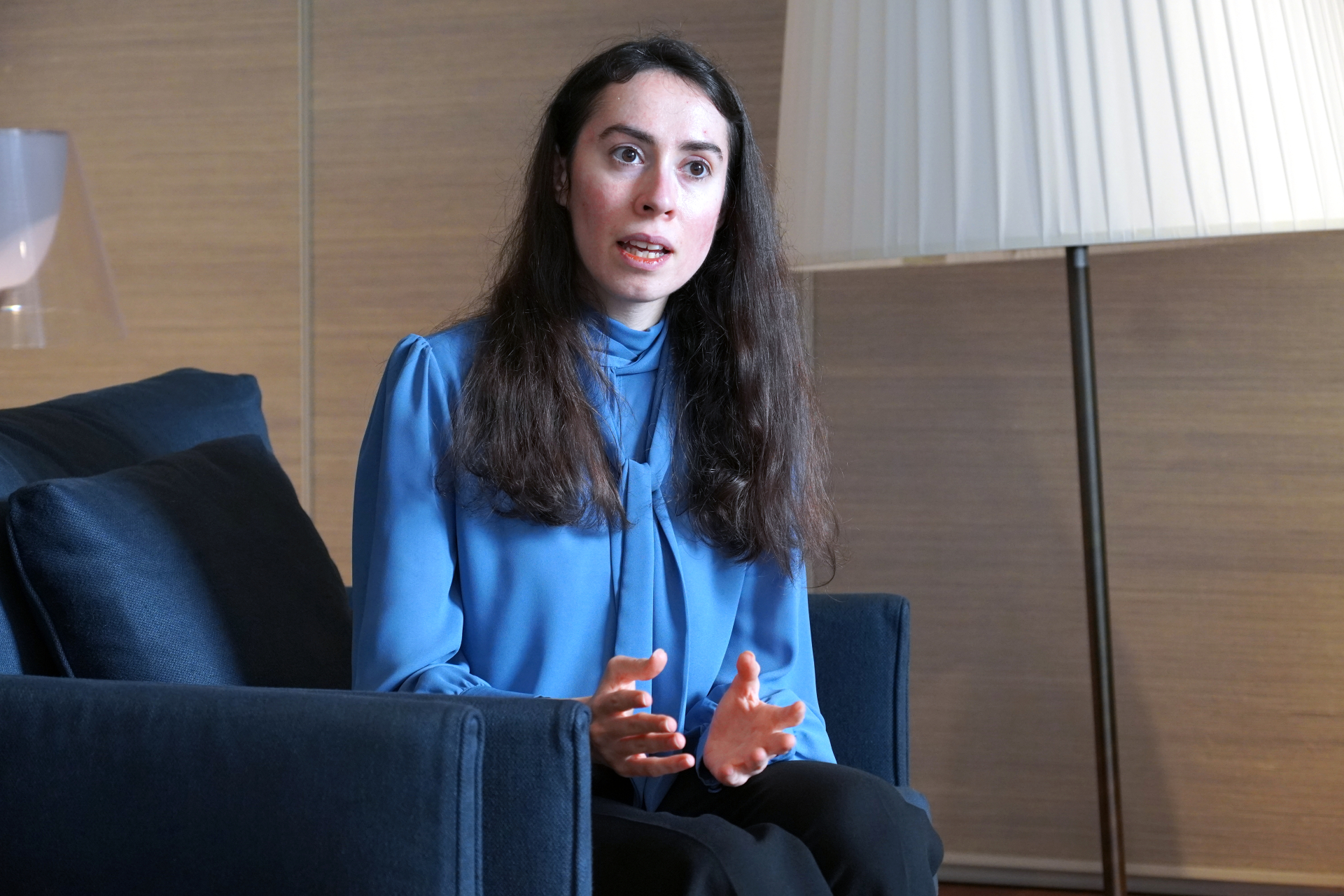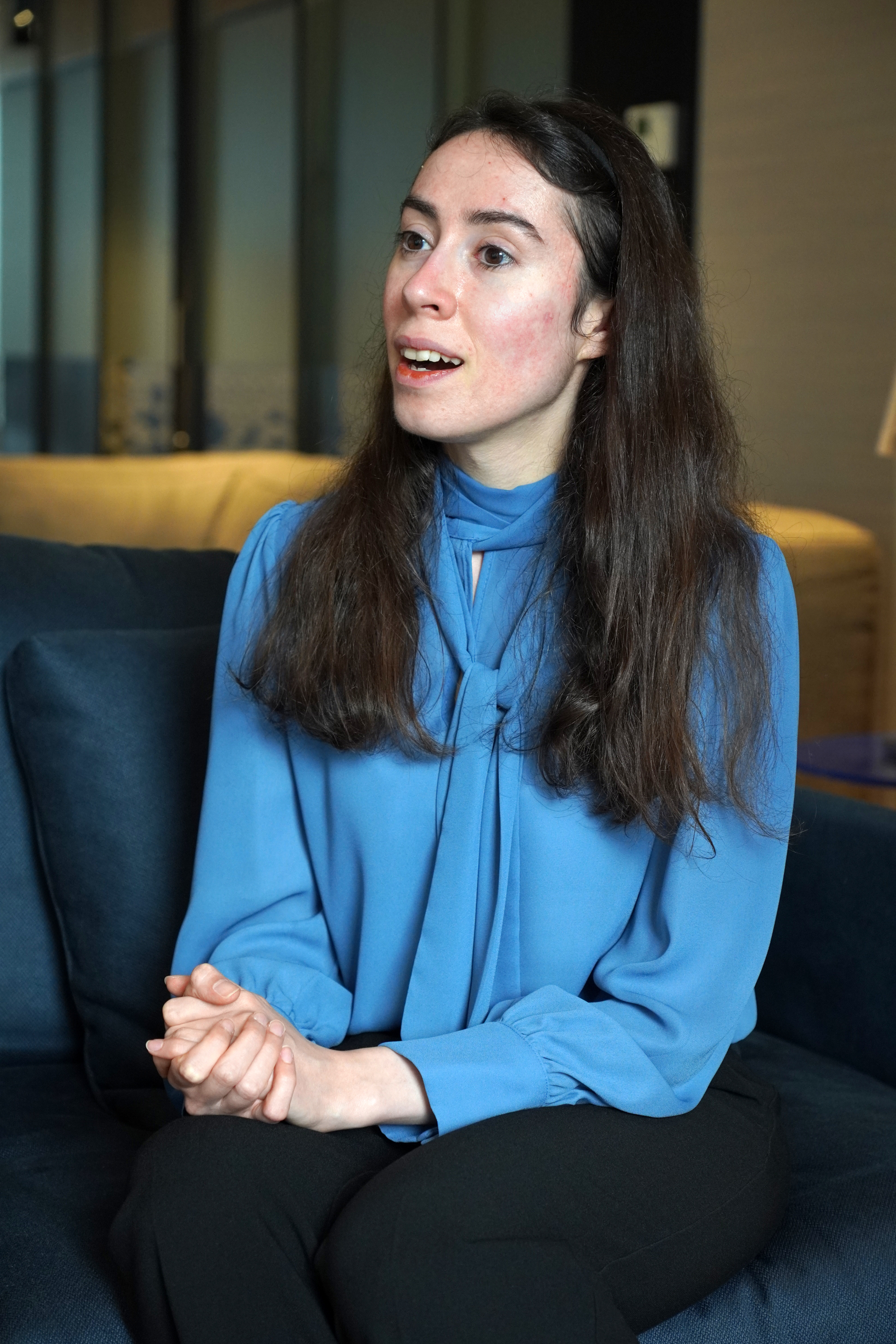Introduction: 2024 will mark the 100th anniversary of diplomatic relations between Japan and Türkiye, two countries that are physically distant, being on opposite sides of Asia, but have enjoyed a close relationship.
SPF, as part of its projects focusing on countries in the Middle East, has sought to deepen these ties, building networks to connect the people of Türkiye and Japan. Earlier in July this year, the foundation’s Asia and Middle East Program welcomed a delegation of young diplomats from Türkiye to experience Japan first-hand, including visits to Tokyo, Kyoto, and Hiroshima.
Our guest today, Dilara Tütüncüoğlu, Second Secretary at the Turkish Embassy in Tokyo, was one of the members of this delegation. In our conversation, we talked about how this visit will inform her work as a diplomat on the ground in Japan, as well as her thoughts about the future of Japan-Türkiye relations from her perspective as someone at the beginning of their diplomatic career.
To begin our conversation, why did you decide to become a diplomat?
Ms. Tütüncüoğlu: Me becoming a diplomat was a surprise even for me, because before entering the ministry, I was actually working as a project manager in the international Organization for Migration, or with the new name U.N. Migration Agency.
During my master's, I studied environment and development. My field of study wasn't migration at all, but since it was covering development, it has at some point also included the migration related issues as well.
After my program was finished, it was 2015. The Syrian refugee crisis was the hot topic, and the U.N. institutions and various international organizations were seeking new personnel who are working in livelihoods, development and so forth, which is why I thought that could be an interesting point to start.
I worked there for about three years, and at some point, I thought I would like to serve my country, so around 2018, I took the exam of the ministry and luckily passed.
In the ministry, my initial department was migration and asylum. I'm very lucky that I had the chance to utilize the knowledge that I have obtained from the UN system in our ministry and for the good of my country.
Take us from there to now in Tokyo. How did you end up in Japan?
Ms. Tütüncüoğlu: I'm currently working in the Embassy of Türkiye in Tokyo as a second secretary. I'm basically following the economic and political affairs in the Embassy. I'm also involved in the environmental issues as well as disaster management.
I have been in Japan for a little bit more than two years. Before that, I was assigned in Ghana, Africa for a temporary position and came here directly afterwards as my second post.
I was expecting to stay in Accra, not temporarily but for at least two years. But afterwards we had a sudden posting from the ministry and I saw Embassy of Tokyo. Actually, it was like a dream come true because if I had the choice, Tokyo would definitely be my first option.
As I'm in charge of the economic and political matters, I'm very much involved with the Ministry of Economy, Trade and Industry (METI) as well as the Ministry of Foreign Affairs (MOFA). I also have been engaging a lot with private sector institutions. Although in Japan there are not many Turkish companies, in Türkiye there are more than 250 Japanese companies, so it is very important for us to keep the communication.
Are there any specific projects that you are working on?
Ms. Tütüncüoğlu: Yes, we are currently working to conclude an economic partnership agreement with Japan, EPA. Actually, we had started negotiations a long time ago, but I believe due to certain developments throughout this period, the negotiations have been slow a little bit. Now they are sort of revived and we are working to conclude it. I am also supporting our authorities to conclude the social security agreement between Japan and Türkiye.
These are the macro level initiatives that we are following up with. But at the same time, we have lots of cultural activities, cultural projects that we are working on.
In your position as a diplomat at the beginning of your career, and as someone also working on the ground in Japan and experiencing these cultural interactions on a day-to-day basis, what do you envision for the future of Japan Türkiye relations? How would you sketch out a future for those relations?
Ms. Tütüncüoğlu: Well, we see vastly improving economic relations with Japan, and I believe, especially due to the recent developments happening in our regions, both concerning the political developments, the security issues, the economic relations will improve.
And that's precisely why we are trying our best to be prepared when the time comes. I believe in the next five years we will establish a more solid economic partnership with Japan.
Our technological project is coming together as Japan has already given us the green light about their willingness to share their experience and knowledge in the field of technology, including construction, in the field of disaster management technology. So we have to take this opportunity to strive further.
Not only from a diplomatic perspective, but also as a person who is temporarily living in Japan, I can see that Japan has been trying to increase its friends and allies recently. Türkiye’s position at the epicenter of Europe and Middle East, puts us in a unique position. So Japan does have a merit in increasing and strengthening its bonds. We believe the same.
We have a recently introduced an initiative called Asia Anew. It has some similarities with Japan's Free and Open Indo-Pacific (FOIP) policy, so we are trying to find common grounds to further strengthen our collaboration in the field of human rights, free and open trade, democracy and the safety of the passageways of maritime and ocean with Japan. I see that that's one of the priorities in the near future and I definitely see a potential for collaboration in these fields.
Could you talk a bit more about that? How would that play out, the idea of these kind of visions coming together, and what does that mean in real terms or more concrete terms?
Ms. Tütüncüoğlu: Sure. Our Asia Anew policy is basically aiming to improve our relations not only within the region, but aims to cover the whole Asia Pacific in various fields. It also covers the basic values like protection of human rights, international law, upholding international law, and protection of the maritime passageways. Japan’s FOIP strategy is also considering these basic elements.
We are thinking that utilizing these basic humanitarian values and the goals and visions in our respective regions, we can align and enhance our collaboration to basically create a sort of synergy not only in our regions but throughout the world, basically.
For example, if we are talking about, let's say, establishing the safe maritime pathways, if we agree on the specific principles, we can both use that in our official and public communications to reach our target populations so that it will be pretty clear that Japan and Türkiye are collaborating to share a common point of view for the good of the international community, and I think the influence of it will be much more extensive than when you do it as an individual country.
I believe that's precisely what Japan is doing. It is introducing the FOIP policy in order to gather the allies so that the common points, the common areas will reveal itself and once several countries promote it at the same time, it can generate an international effect.
We've talked about these areas where interests are overlapping. I wonder if there are any areas you see for improvement or challenges that exist that will be coming up in the future as well.
Ms. Tütüncüoğlu: Sure. First of all, the priorities at the micro level are a bit different. In Japan's neighborhood, there are specific challenges, right? Concerning their maritime issues particularly, whereas in Türkiye we have some other concerns. Although, in principle the problem looks the same, the specifics differ. In reality, how our Asia Anew and FOIP policies play out also could differ.
I think one of the main challenges would be to depict them in practice, especially considering the geographical position of our countries.
Japan is an island country, so its policy is conducted around this fact, whereas in Türkiye it is quite different. We are at the epicenter of lots of different geographies and our maritime passageways are also quite complicated as they are merging the Black Sea and the Mediterranean, connecting them with Asia.
I think it will take some time for us to discover the common areas that we can work together, but the upholding common goals and basic principles will certainly help during this process.
I think the most important way to overcome this would be periodically regular consultations. For example, last year we have initiated the first maritime consultations between Japan and Türkiye and from that we have discovered lots of points that we didn't know about each other previously, and we had a chance to fix that.
It will play a very important role in terms of aligning our stances and policies in the near future. If we are aiming to find the common ground between these two main policies, we have to always inform each other and keep in dialogue as to how we are improving, how we are taking the next steps, and so forth. As long as we do that, if there are inconsistencies, we will immediately figure it out and find a way through.
I'd like to turn our conversation to a recent experience that you had with the Sasakawa Peace Foundation. You were recently part of a delegation of young diplomats from Türkiye who came to Japan and did a variety of visits arranged by SPF’s Asia and Middle East Program. Could you tell us a little bit about what exactly you did on that visit?
Ms. Tütüncüoğlu: I think the best and the shortest way to describe is that it is thorough, very thorough program, because it includes almost every aspect that a diplomat can experience in this short amount of time.

